
The Eagles achieved stratospheric success in the 1970s, effectively bridging the country rock and soft rock styles that were popular in the early 1970s. Songwriting team Don Henley and Glenn Frey pumped out a ton of popular singles, and their Their Greatest Hits (1971–1975) is one of the highest-selling albums of all time.
As the decade wore on, they lost most of the country from their sound and became a straightforward rock band. The Eagles broke up in 1980, but reformed in 1994 for a live album (with a handful of new studio tracks) and released one further studio album, Long Road Out Of Eden, in 2007. Frey passed away in 2016, but the group have continued to tour with his son Deacon and country artist Vince Gill taking his parts.
Introduction
There’s a lot to like about the Eagles – their vocal harmonies are often excellent, and I like a lot of the supporting musicians that passed through the group. Don Felder and Joe Walsh are excellent lead guitarists, Bernie Leadon’s a capable country player who earlier served in Dillard & Clark and The Flying Burrito Brothers, while bassists Randy Meisner and Timothy B Schmitt are excellent musicians and harmony vocalists. But Henley’s drumming is a weak point in an otherwise strong ensemble of musicians, and it’s telling he used outside drummers on his solo records while concentrating on lead vocals and lyrics. Glenn Frey was a good tune-smith, but his frat-boy persona wasn’t endearing.
The Eagles also have an identity crisis – they feel like a commercialised version of more sincere country-rock acts on their early albums, but they sound sterile by 1979’s The Long Run, out of energy and with all of the country twang removed from their sound. But I do enjoy their middle albums like On The Border and One of These Nights, as they gradually transition from country to rock.
Another issue with the Eagles is that their stratospheric sales and huge arena tours put them in the top echelon of rock acts. But their album output is too spotty for them to rate among the great bands of the 1970s. They’re much stronger as a singles band, and it’s not surprising their most successful album was a compilation.
Eagles Album Reviews
Favourite Album: On The Border
Eagles
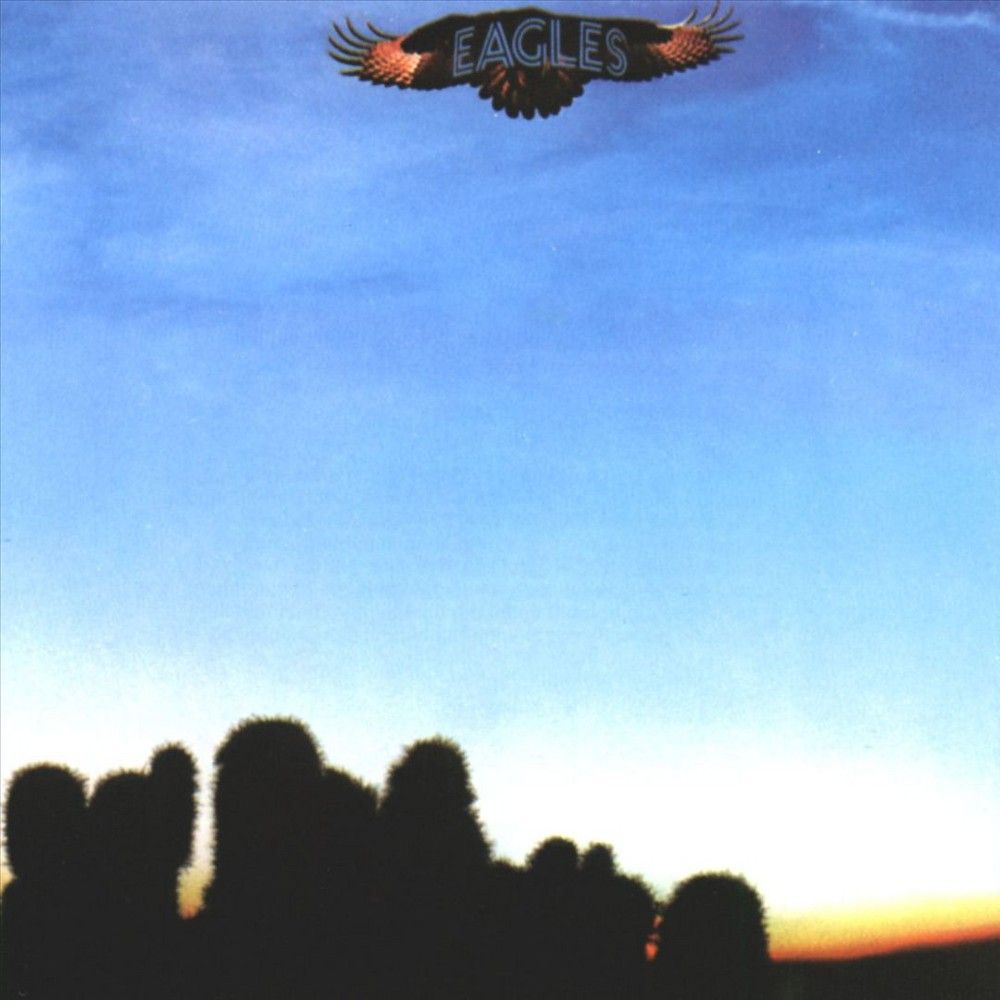
1972, 6/10
The Eagles had recently formed as a backing group for Linda Ronstadt’s Silk Purse album and were still finding their identity when they recorded their debut. They were a much more democratic band on their first record – lead vocals are shared around, and they’re not yet dominated by the Frey-Henley songwriting team that would later supply most of their material. In fact, Henley and Frey don’t write together at all, and Henley only supplied one lead vocal on the album before the late addition of ‘Nightingale’. Two of the album’s best-known songs came from outside writers – Frey’s only contribution to Jackson Browne’s ‘Take It Easy’ was the line about the girl slowing down to check him out – while Jack Tempchin wrote ‘Peaceful Easy Feeling’.
The album’s other single was written by Bernie Leadon and Don Henley – ‘Witchy Woman’ is menacing, with Henley’s sinister lead vocal, and its hedonistic subject matter is more telling of the group’s future direction than the album’s more lightweight ditties. There’s a nice Gene Clark cover with ‘Train Leaves Here This Morning’, and I enjoy Meisner’s dramatic God-rock on’Take The Devil’, even if I’m happy to concede that it’s not a strong composition. But otherwise, it’s tuneful fluff like ‘Most Of Us Are Sad’ or embarrassing efforts like Frey’s ‘Chug All Night’, a contender for the worst thing the band ever released – “I believe we could chug all night/I believe we could hug all night” is a particularly awkward rhyme.
The Eagles are already professional sounding, but the group don’t have their identity yet, and it’s often a bunch of pointless, pretty country-rock songs.
Desperado
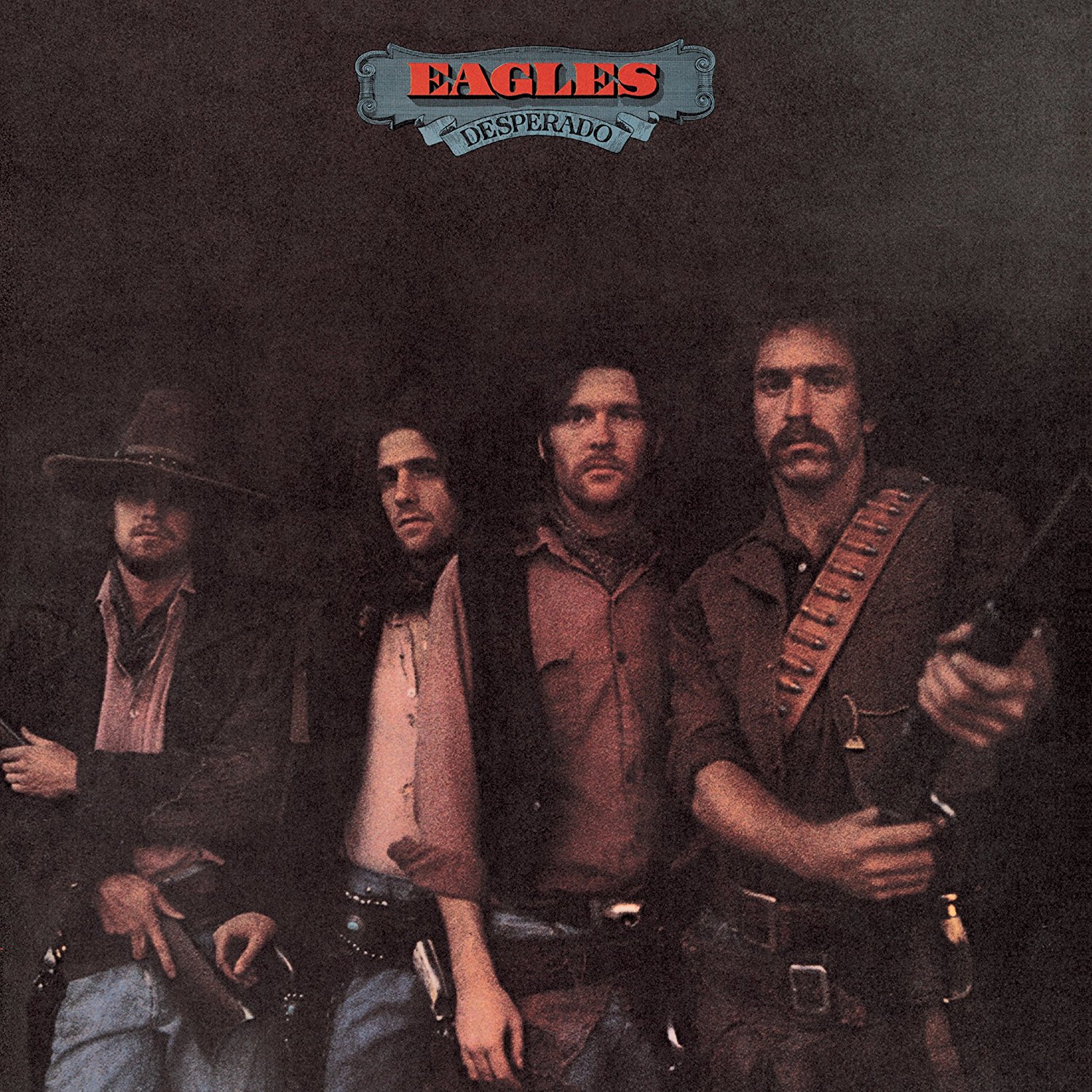
1973, 6.5/10
The Eagles shot for serious artist status with their second album, a concept album about Wild West outlaws. While there’s no central storyline, most of the songs follow the themes of rebellion. Frey liked the idea of the band positing themselves as outlaws, although Henley said later “The metaphor was probably a little bullshit. We were in L.A. staying up all night, smoking dope, living the California life, and I suppose we thought it was as radical as cowboys in the old West. We were really rebelling against the music business, not society.” Desperado wasn’t a commercial success, failing to match the chart performance of the debut until later albums pulled the group to Tier 1 status.
Musically, the most important development is the emergence of the songwriting team of Frey and Henley. In their first afternoon writing together, they finished the title track, a piano ballad that Henley had started in 1968, while ‘Tequila Sunrise’ also emerged quickly. The pair are involved in most of the tracks here, although the best album track is Leadon’s ‘Bitter Creek’, a mournful, meditative acoustic piece, while the group composition ‘Saturday Night’ is also pretty. The album is a little disjointed and inconsistent – three versions of ‘Doolin’ Dalton’ is overkill, and songs like ‘Twenty One’ and ‘Out Of Control’ feel like throwaways.
Despite its mediocre commercial performance, Desperado was a step forward for the Eagles, centring the band around Henley and Frey and relegating the other members to bit parts.
On The Border
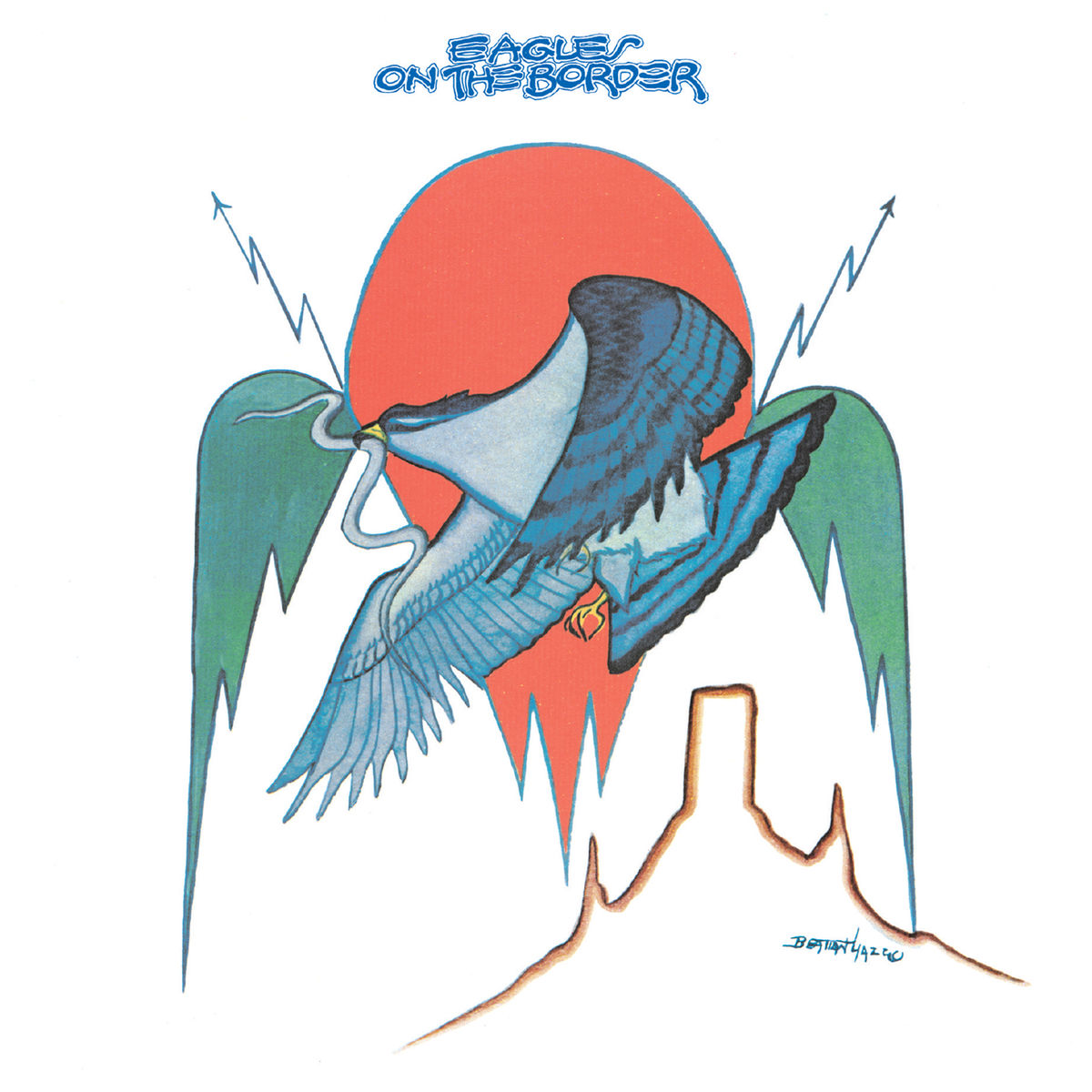
1974, 8/10
The Eagles returned to the studio with Glyn Johns to record their third album, but after completing a couple of tracks, dropped him in favour of Bill Szymczyk, who gave the band a more rock-oriented sound. Confusingly, however, it was the album’s third single, the Johns’ produced ‘The Best of My Love’ that was the album’s number one hit, lifting the band from moderate successes to mega-stars. Lead guitarist Don Felder was a late addition to the band during the recording process, giving the band a harder edge on the two songs he played on, ‘Already Gone’ and ‘Good Day In Hell’.
On The Border is my favourite Eagles album, an interesting transition between their country beginnings and later rock sound. ‘Midnight Flyer’, is a country song given a rock arrangement, while Felder helps the band rock harder than before on ‘Already Gone’ and ‘Good Day in Hell’. Bernie Leadon has a touching tribute to Parsons with ‘My Man’, bassist Randy Meisner has a straight-up, concise pop song with ‘Is It True?’, and they transform Tom Waits’ ‘Ol’ 55′ with smooth harmonies. Henley’s vocal spotlight on the closing ‘Best of My Love’ is gritty and emotive, but the Jackson Browne penned single ‘James Dean’ is too hokey to work.
It’s a little patchy, but On The Border is generally entertaining, and for my money, it’s the best studio album the Eagles ever recorded.
One Of These Nights
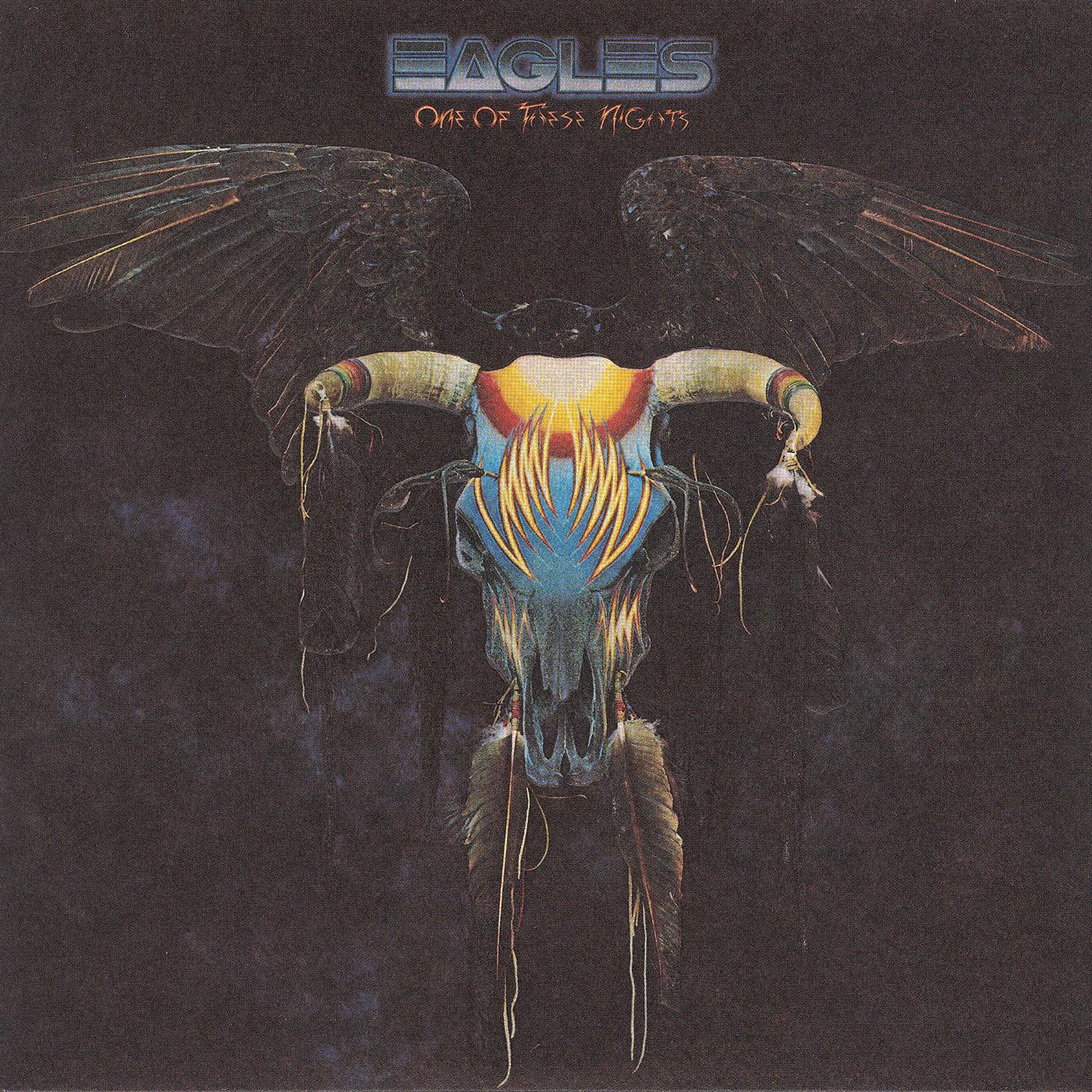
1975, 7.5/10
Henley’s lyrical preoccupations start to take centre-stage on One Of These Nights, with songs like ‘Hollywood Waltz’ and the title track picking away at the seedy underbelly of California glamour and decadence. With the addition of Felder’s guitar and the song-writing team’s growing confidence and more varied arrangements, One Of These Nights was a step forward for the band. But at the same time, it feels less than the sum on its parts – with too many slow songs and long track times, it loses momentum.
Sequencing is also an issue with the two most upbeat songs placed at the start of the record. The title track finds the Eagles taking on disco successfully and subjugating it to their will, using Meisner’s falsetto harmony vocals and Felder’s terrific guitar solo. Meisner and Felder’s ‘Too Many Hands’ has dispensable lyrics, but some great guitar work. But after a sparkling start, the album gets bogged down in too much sludgy mid-tempo material, even if most of the individual songs are fine. The singles ‘Lyin’ Eyes’ and ‘Take It To The Limit’ both feel overlong and drag, while Leadon’s pretty farewell song ‘I Wish You Were Peace’ is buried under treacly strings and ‘Visions’ suffers from Felder’s likeable but anaemic lead vocal. ‘I Wish You Peace’ was written with Leadon’s then-partner, Ronald Reagan’s daughter Patti Davis, giving him the final word on his last album with the band. A much better swansong for Leadon is his instrumental, ‘The Journey of Sorcerer’, later used as the theme music for Hitchhikers Guide To The Galaxy.
I like all of the individual songs on One Of These Nights – it could have been a terrific album with some punchier arrangements, better sequencing, and some trimming of track times.
Hotel California
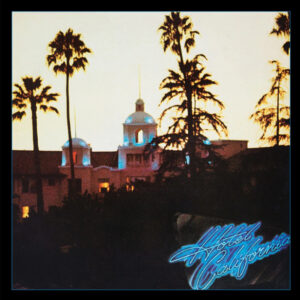
1976, 7.5/10
Don Henley is even more in the spotlight for the group’s best-known album, Hotel California. He takes the majority of the lead vocals, and his lyrical agenda of scratching at the sordid underbelly of fame is upfront on songs like the title track (“You can check out any time you want/But you can never leave”), ‘Life In The Fast Lane’, and ‘Victim of Love’. Like One Of These Nights, Hotel California feels like less than the sum of its parts – most of the individual components are strong, but there are too many slow songs and bloated running times. Leadon was replaced by James Gang guitarist Joe Walsh, who wrote the muscular guitar riff for ‘Life In The Fast Lane’. Hotel California was Meisner’s final album with the band – reportedly one contributing factor was his stage-fright around singing the final high note in ‘Take It To The Limit’ live.
The album opens with a trio of the Eagles’ best-known songs – the title track fades out with the well-known guitar duel between Felder and Walsh, while ‘New Kid In Town’, written about the recently emerged Bruce Springsteen, is pretty and harmonised. Henley sprays plenty of vitriol on ‘Life In The Fast Lane’, while the first side closes with the Henley-sung piano ballad ‘Wasted Time’. Don Felder contributed the chord progression for ‘Hotel California’ (its working title was Mexican Reggae), and he also bought in ‘Victim of Love’ – he was to sing the lead vocal, but manager Irving Azoff took him out to lunch while Henley completed it behind his back. The second side is generally weaker, although Meisner’s ‘Try and Love Again’ is pretty, and ‘The Last Resort’ shines lyrically, an ecological warning tale (“Call someplace paradise, kiss it goodbye”.)
Hotel California isn’t a great album – it’s too low energy and it’s overcooked to over-perfection. But it’s another good record from the Eagles strongest period, although they were about to run out of steam…
The Long Run
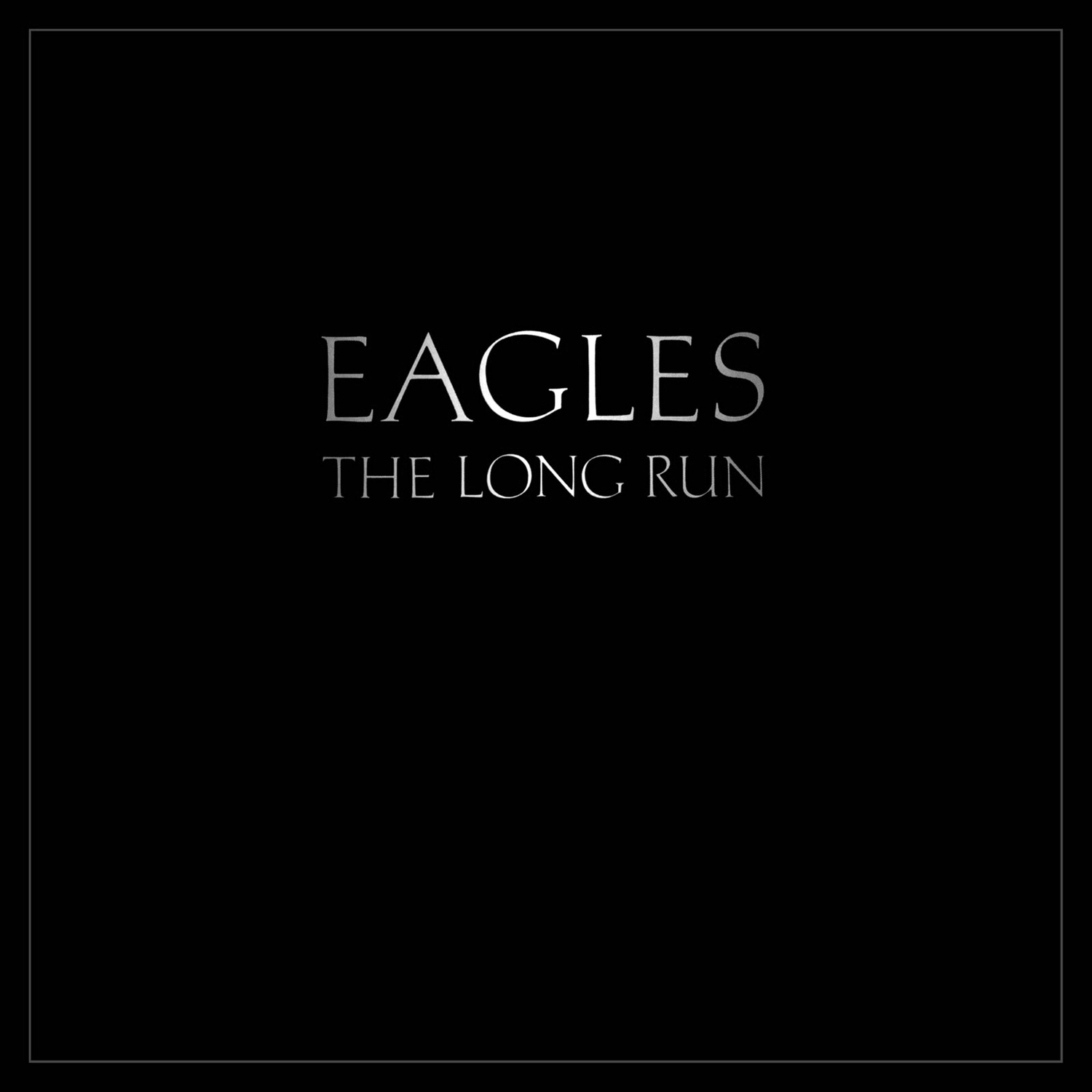
1979, 4.5/10
Up until this point, the Eagles had been cranking out an album and a handful of hits every year. The fact that The Long Run took three years to emerge was a worrying sign. Scarily, it was originally planned as a double album – given the presence of weaker tracks like ‘The Greeks Don’t Want No Freaks’ and ‘The Disco Strangler’, it’s concerning how poor the outtakes must have been. The band’s sound has also become less interesting – without Meisner and Leadon there’s no country, and it’s often tending towards bland, sterile rock.
Despite the weakness of the rest of the album, the first three songs are solid. The title track chugs along at mid-tempo, but I like Henley’s vocal and the line “all the debutantes in Houston, baby/couldn’t hold a candle to you.” Joe Walsh’s ‘In The City’ was recycled from an earlier soundtrack, but it’s fun and energetic. And nestled between them is my favourite ever Eagles track – new bass player Timothy B. Schmitt’s R&B flavoured showcase ‘I Can’t Tell You Why’. Schmitt’s vocal is smooth and honeyed, Glenn Frey’s guitar solos are gorgeous, and like ‘One Of These Nights’ it’s a remarkably successful foray into foreign musical territory for the Eagles. Elsewhere, the talk box guitar on ‘Those Shoes’ is fun, and ‘The King of Hollywood’ is prescient of the Harvey Weinstein scandal almost forty years later, but there are way too many bad throwaways, including the shallow, irritating single ‘Heartache Tonight’.
With tensions in the band escalating, particularly between Frey and Felder, the Eagles broke up in 1980, and The Long Run certainly sounds like a tired band running out of ideas.
Eagles Live
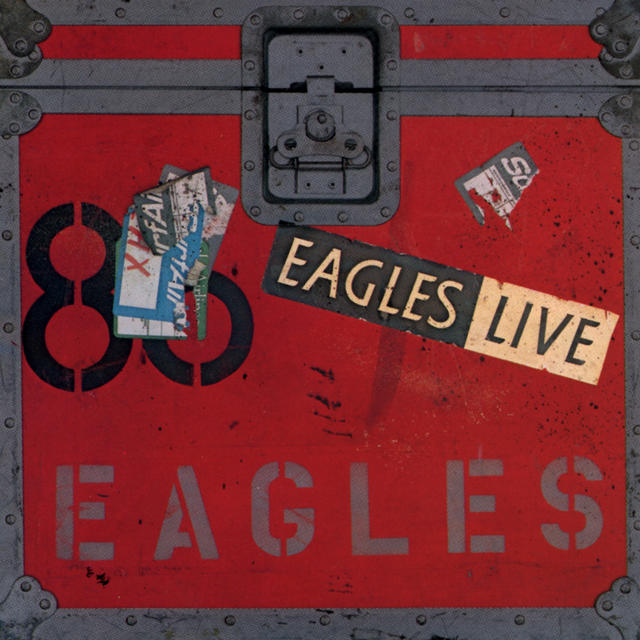
1980, not rated
The Eagles weren’t noted as a dynamic live band, and this 1980 contractual obligation record largely goes through the motions. It’s taken from 1976 and 1980 live shows, and the set-list concentrates on Hotel California and The Long Run. There is one excellent addition to the band’s catalogue – an acapella cover of Steve Young’s ‘Seven Bridges Road’ that showcases their skill as harmony singers. Elsewhere, Walsh livens up the set with ‘Life’s Been Good’ and ‘All Night Long’, but you don’t need to hear this unless you’re a super-fan.
Hell Freezes Over
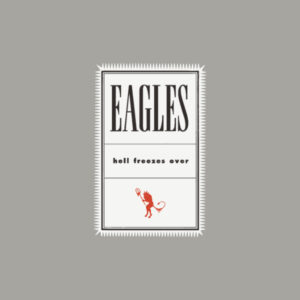
1994, not rated
A mostly live reunion album that opens with four new studio tracks – Schmitt fronts the dull soft-rock of ‘Love Will Keep Us Alive’, and the rocker ‘Get Over It’ is hokey despite some memorable Henley barbs. Frey’s ‘The Girl From Yesterday’ borrows the melody from Gram Parson’s ‘The Streets of Baltimore’, and the best new song, ‘Learn To Be Still’, could have come from a Henley solo project. The live set focuses on Hotel California and The Long Run, with professional renditions that vary little from the studio versions – the exception is an acoustic version of ‘Hotel California’ that’s unsatisfying without the searing solos. Hell Freezes Over is competent, but only interesting for hardcore fans and completists. It’s the band’s last album with Don Felder, who was pushed out of the band – a story he later told in his book Heaven and Hell: My Life in the Eagles (1974–2001).
Long Road Out of Eden
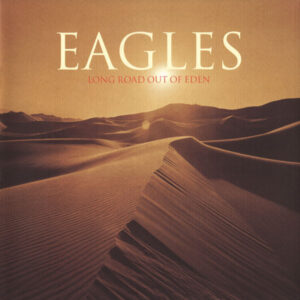
2007, 4.5/10
The Eagles managed to stay in the same room long enough to record a full reunion album. Unsurprisingly, with all the egos in play, Long Road Out of Eden is bloated – it took six years to make, and it’s an hour and a half long double album. It’s basically what you’d expect – lots of mellow adult-contemporary, with a little bite still left in Henley and Walsh. The lineup is the four-piece band with Frey, Henley, Walsh, and Schmitt – Frey and Henley rarely write together, and Long Road Out of Eden often sounds like a conglomeration of solo tunes.
Thankfully, the record starts implausibly strongly – the opener ‘No More Walks in the Wood’ is humble and stripped back, showcasing the band harmonies. ‘How Long’ was resurrected from J.D. Souther’s 1972 album John David Souther, and it’s a great move – the vintage song gives the group some vitality. ‘Busy Being Fabulous’ adds some necessary regret to Henley’s social critique.
Unsurprisingly, Long Road Out of Eden promptly reverts to type; lame adult-contemporary ballads like Schmitt fronting Paul Carracks’ ‘I Don’t Want To Hear Anymore’ and Frey’s ‘You Are Not Alone’. There are bright spots – the title track is an ambitious Henley piece that continues the lyrical themes of 1970s tracks like ‘The Last Resort’. Walsh only pens one song, ‘Last Good Time In Town’ and it’s fun; it’s a shame Walsh wasn’t able to implant more personality on the record.
Long Road Out of Eden is way too bloated to interest anyone outside of dedicated fans, but it was still the highest selling record of 2007, impressive from an ageing band of boomers.
Ten Favourite Eagles Songs
I Can’t Tell You Why
New Kid In Town
One Of These Nights
Journey of the Sorcerer
Hotel California
Desperado
Seven Bridges Road
Already Gone
Best Of My Love
Too Many Hands
Glenn Frey
The Best Of (The Millennium Collection)
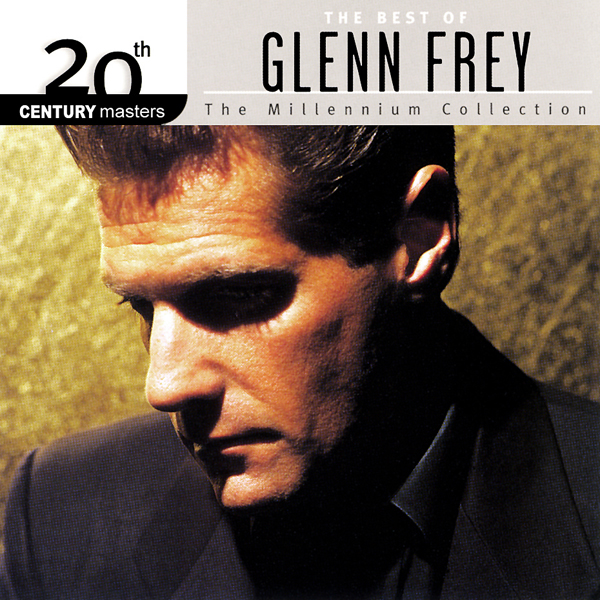
2000, 3/10
I always held the impression that Glenn Frey supplied the Eagles’ tunefulness and the bulk of their limited country authenticity, but it turns out that his solo career is 1980s corporate mush. Frey liberally throws in drum machines, saxophones, female backing vocals, and percussionists to perfectly meet the specifications for 1980s’ soft-rock. The live ‘The One You Love’ features three guitarists, two keyboardists, two percussionists and a horn section, while ‘Love in the 21st Century’ blatantly steals the riff from Creedence Clearwater Revival’s ‘Fortunate Son’. The only time that Frey ventures near country-rock, on ‘Part Of Me, Part Of You’, is tolerable, even though that song spoiled the end of Thelma and Louise.
The music’s bad, but so are the lyrics; brain-dead efforts like ‘True Love’ and ‘The One You Love’, are respectable next to ‘Sexy Girl’ and ‘The Allnighter’. If lyrics like “I know you’re just a woman, I’m just a man/Let’s be true to each other, do the best we can” are below the intellectual level of a boy band, “She needs a love from a real exciter/she needs the allnighter” are off the scale. The Best Of is saved from total worthlessness with some nice vocals (‘The One You Love’), and the occasional passable song (the relatively compelling ‘You Belong to the City’ from Miami Vice, or ‘Part Of Me, Part Of You’). But The Best Of is a compelling case for Don Henley possessing most of the intelligence behind the Eagles. In his solo spotlight, Frey merely displays occasional melodic flair.
Apparently, this compilation is actually successful at collecting the best material from Frey’s solo albums, so I wouldn’t be touching them with a barge-pole.
Don Henley
Actual Miles: Henley’s Greatest Hits
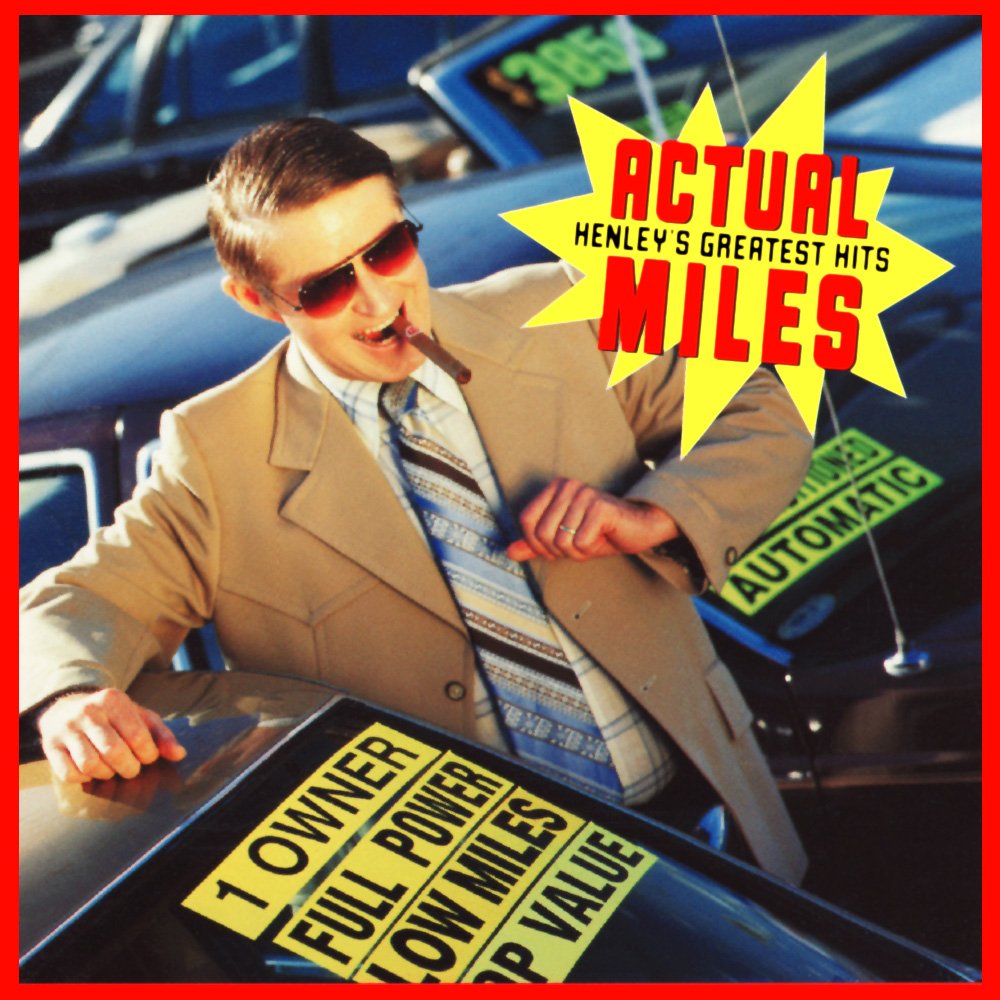
1995, 8/10
Don Henley’s solo work is underpinned by a greater intelligence than Glenn Frey’s. Most of Henley’s material is purposeful and thoughtful, whether he’s continuing the attack on celebrity indulgence of the later period Eagles or writing personal and heartfelt relationship songs. He’s also adept at harnessing guest cameos to add personality, and Axl Rose, Sheryl Crow and Bruce Hornsby all make important contributions, while Heartbreaker Mike Campbell is a frequent musical collaborator. In fact, I’d take this compilation over any Eagles’ studio album; drawn from three 1980s studio albums and three new tracks, it’s more consistent, and although many of these tracks could do with a trim, few of these songs are completely disposable.
Top tier songs include the 1984 hit ‘The Boys of Summer’, with a haunting Mike Campbell guitar figure, and the Bruce Hornsby collaboration ‘The End of the Innocence’ The latter is eloquent social critique (“They’re beating plowshares into swords/For this tired old man that we elected king”) underpinned by Hornsby’s gorgeous piano work. The new song ‘The Garden of Allah’ is a little awkward, but interesting; based around the scenario of the devil visiting a city and finding that modern life and materialism has made him redundant. ‘Dirty Laundry’ is an effective indictment of celebrity muck-raking, although it’s dated less gracefully than everything else here, while ‘The Last Worthless Evening’ and ‘Heart of the Matter’ are sappy but effective ballads. The other two new songs, the vitriolic ‘You Don’t Know Me At All’ and the Leonard Cohen cover ‘Everybody Knows’, are among the lesser songs but they still fit in fine.
Henley’s cynicism suits the 1980s and Actual Miles is more consistent than any Eagles album.
Back to 1970s Album Reviews….
9 Comments
Leave a Reply
Related Pages
About
Aphoristic Album Reviews is almost entirely written by one person. It features album reviews and blog posts across a growing spectrum of popular music.
Review Pages
Read about the discographies of musical acts from the 1960s to the present day. Browse this site's review archives or enjoy these random selections:
Blog Posts
I add new blog posts to this website every week. Browse the archives or enjoy these random selections:
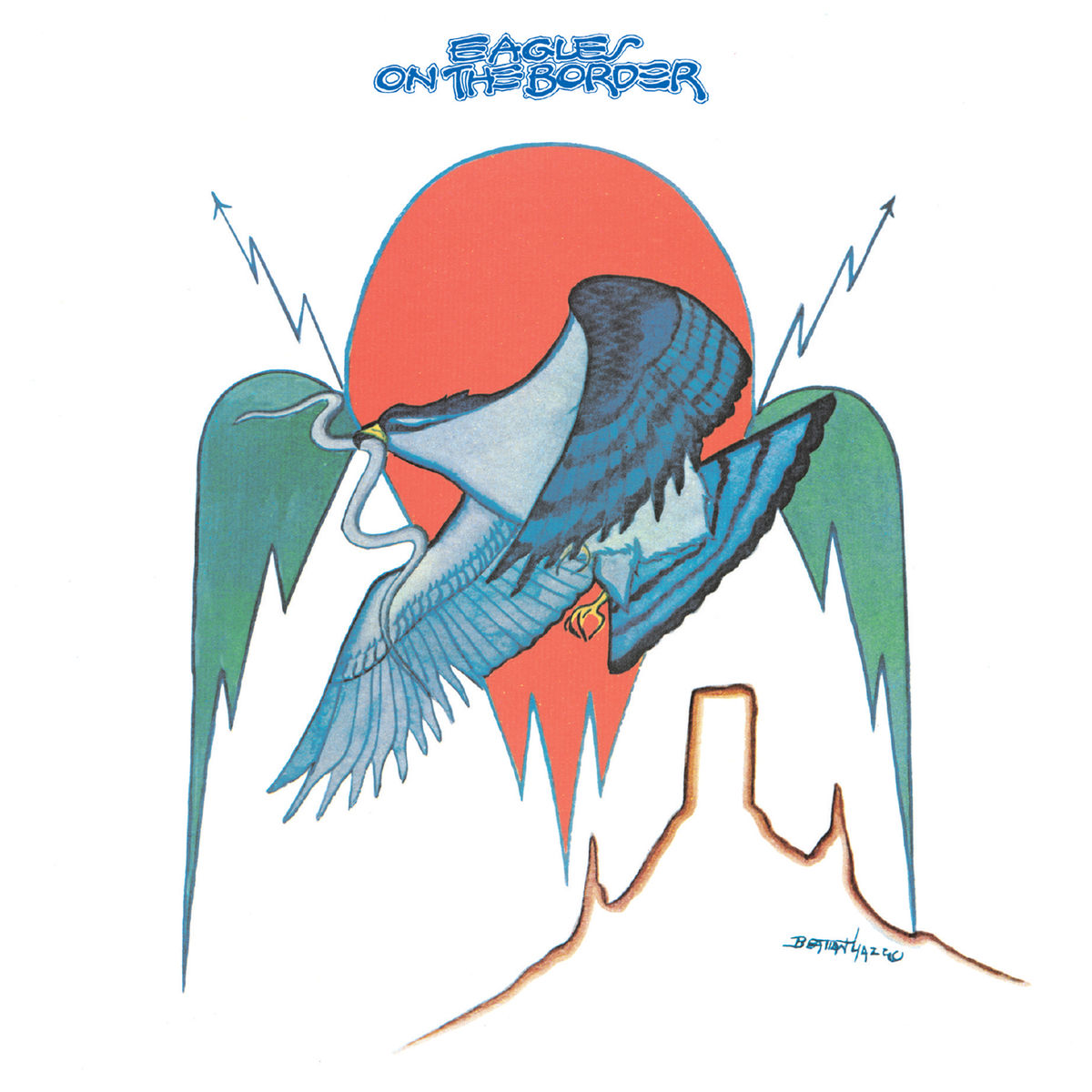
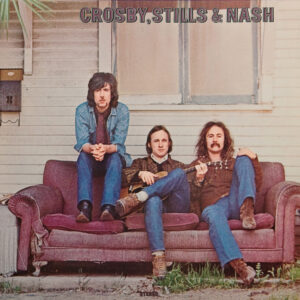
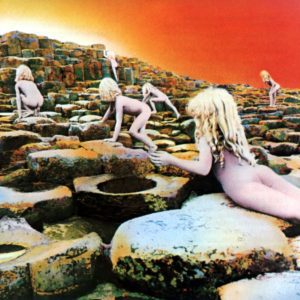
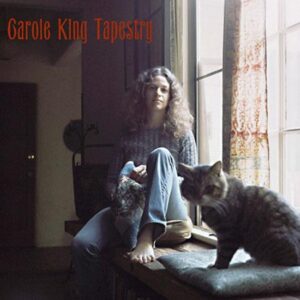
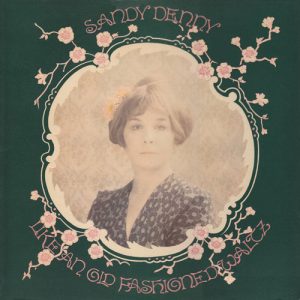
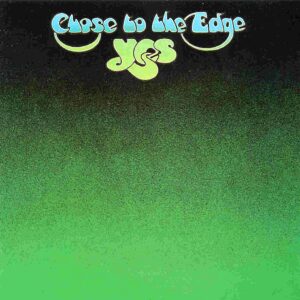
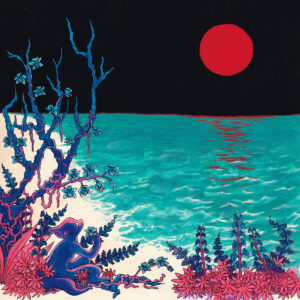
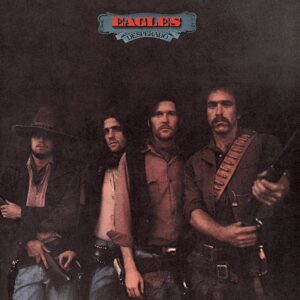

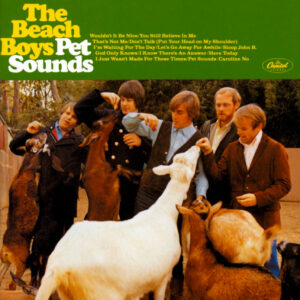
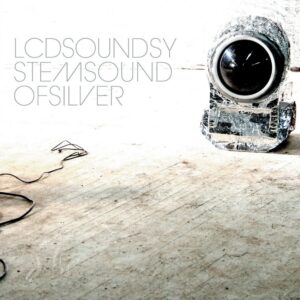
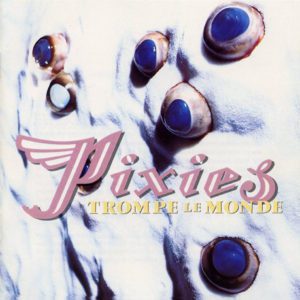
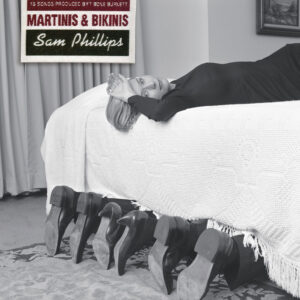
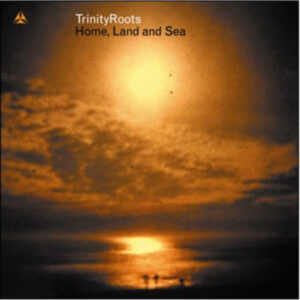
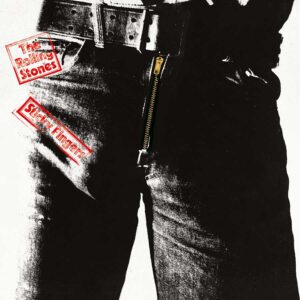
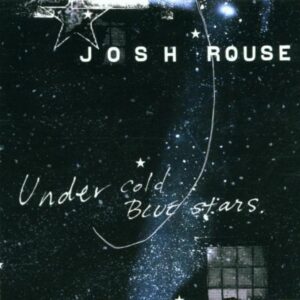
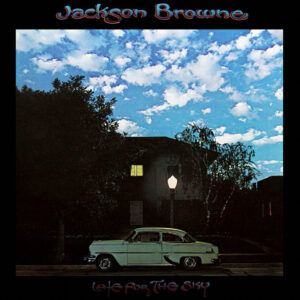
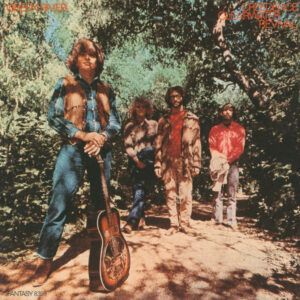
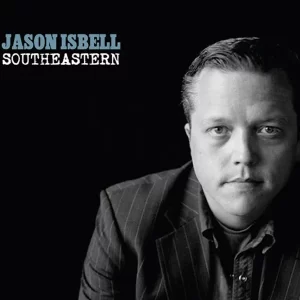
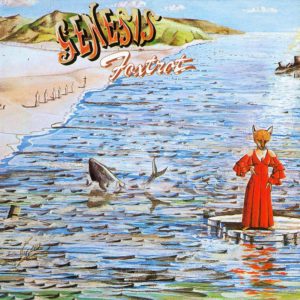
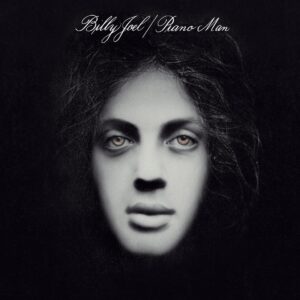




Top 10 Eagles
Take it easy
Ol’ 55
New kid in town
Take It to the Limit
Life in the Fast Lane
Lyin Eyes
One of these nights
Peaceful Easy Feeling
Please Come Home for Christmas
Seven Bridges Road
Quite different from mine! I have a lot of time for their cover of Ol’ 55 though – could have maybe been a hit.
am i the only one? i always wondered why some people don’t take the Eagles seriously. after all, they’re a very serious band, and memorable albums and a messedup drug and self depricating history of songs about lost love, hatred and wasted broken regret. anyway, my fav album is The Long Run. it was huge, and i was 10 years old, an age when i began to understand that life could get messed up and i was open to new ideas (such is art). The sad cafe is the best song on the albu, but never got recognition , like it deserved. it’s haunting, creepy and depressing. one of the best songs about lost youth and the fear of the future, now that the ones you love the most are either moving on with their lives or even worse, have passed away. And, features one of my favorite lines in a song and so true its almost hard to accept (i don’t know why fortune smiles on some, and lets the rest go free)
it’s not Hotel California of course….but it’s not about innocence lost and the decay of California. it stands on its own as an eerie sign of the 80s and all the heartache that came with it.
I like Sad Cafe – it did get included on Greatest Hits II so it’s not totally obscure. More than any other Eagles song from the 1970s, it sounds like a solo Henley track to me – especially with the sax solo in there.
I finally got round to doing Long Road Out Of Eden after you recommended it a while back. As you say, it is bloated, but, for me, there’s not a bad track on it, despite that.
I was impressed that it wasn’t their worst album.
It’s hard to remember when hotel California competed with rumors for chart dominance. I don’t think hotel California has aged nearly as well. Yeah I still gets played on yacht rock radio but who do you hear covering it. The eagles never had the macs charisma
Eagles had lots of talented pieces, but yeah – no one as charismatic as Nicks and Buckingham.
Was just listening to the powerfully affecting ” Too Many Hands” from “One of these Nights” which can be cleverly either heard as a powerful and ever timely cry for respect for our Mother Earth as a protest song about the objectification and mistreatment of women. In anycase, it’s hard to understand how the reviewer could call the lyrics “dispensable”.